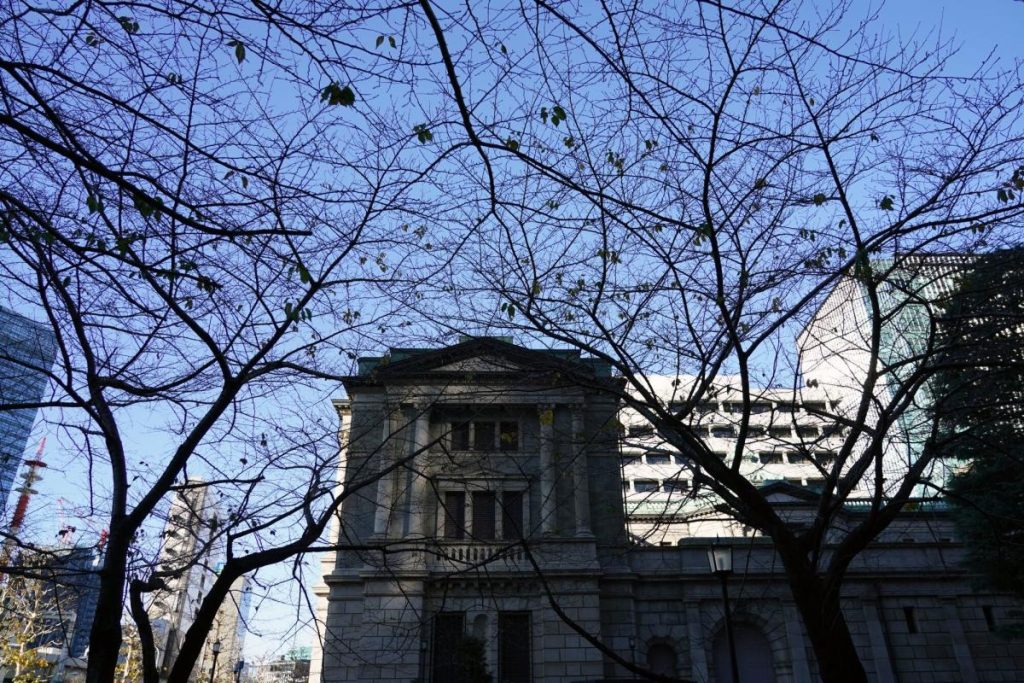
(Bloomberg) — The Bank of Japan is on course to finish offloading millions of dollars of stocks that it bought from beleaguered banks during the financial crisis two decades ago sooner than scheduled, a development that throws into focus the fate of its considerably larger holdings of exchange-traded funds.
Most Read from Bloomberg
The book value of share holdings acquired by the BOJ stood at ¥52.8 billion ($345 million) as of Feb. 10, according to the latest BOJ report on its account. Considering the pace of its monthly selling has consistently been about ¥10 billion over the past few years, the central bank could dispose of all the remaining assets in about five months. The bank said in 2015 it would finish selling down these shares by March 2026.
It’s a key consideration for investors. Many BOJ watchers are of the view that authorities wouldn’t likely sell the assets purchased from banks and ETFs simultaneously over concerns of potential market ructions. An early finish to the bank stock operations raises the possibility that the BOJ may telegraph its intention to sell ETFs by kicking off discussions with market participants on the process as early as this year.
The ETFs holdings are the last major piece of Governor Kazuo Ueda’s policy puzzle. As he’s sought to unwind the ultraeasy policy settings undertaken by his predecessor, the governor has refrained from referencing specific plans for ETFs even as he raised interest rates and dismantled the yield-curve control mechanism.
Ueda has raised rates three times over the last 12 months, and has also announced a plan for quantitative tightening through the sale of massive government debt holdings. The chief last month reiterated his long-held position that he needs more time to mull the fate of the ETFs because it’s a complicated issue.
The BOJ holds about ¥37 trillion ($242 billion) of ETFs by book value, according to the latest account data. In terms of market value, these assets were worth ¥70.3 trillion at the end of September, according to a central bank report. Shares on the Nikkei 225 index have risen 3.3% since then and are almost four times higher than when the central bank launched the ETF buying.
The BOJ began to buy the stock funds in December 2010 as part of a monetary stimulus program aimed at stoking inflation. Former Governor Haruhiko Kuroda expanded the asset buying so much that the bank became the biggest single holder of Japanese stocks before his successor Ueda formally ceased the operations in March last year.


